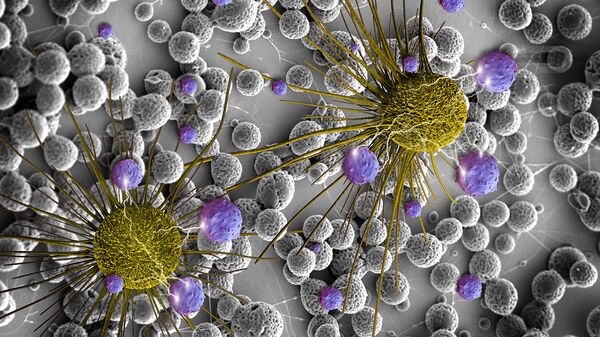The spread of cancer from one part of the body to another is notoriously difficult to track but, in order to spread, cancer must travel through the bloodstream. New 'liquid biopsy' devices, created by researchers in Massachusetts, can now detect life-threatening cancer cells floating in the bloodstream before they colonize other parts of the body, Science News Journal reports.
The process of tracking cancer as it moves through the bloodstream is relatively new, according to Balaji Panchapakesan, lead project engineer. The small number of cancerous cells, when compared to the body’s ordinary red and white blood cell populations, makes the early discovery of the disease extremely difficult.
The new device offers significant improvements over existing fluid biopsies. Perhaps most significantly, it is said to trap between 55-100 percent of floating malignant cells, a significantly-higher rate than current microfluidic chips. The technology is said to catch exosomes as well, a tiny byproduct of cancer cells, that are sensed by the chips carbon nanotubes. Further, the device uses what is called a passive leukocyte depletion strategy, to isolate cancer cells from white blood cells, which are often mistakenly identified as cancerous.
Conducting blood tests and testing results can be accomplished in the same day, Panchapakesan said.



